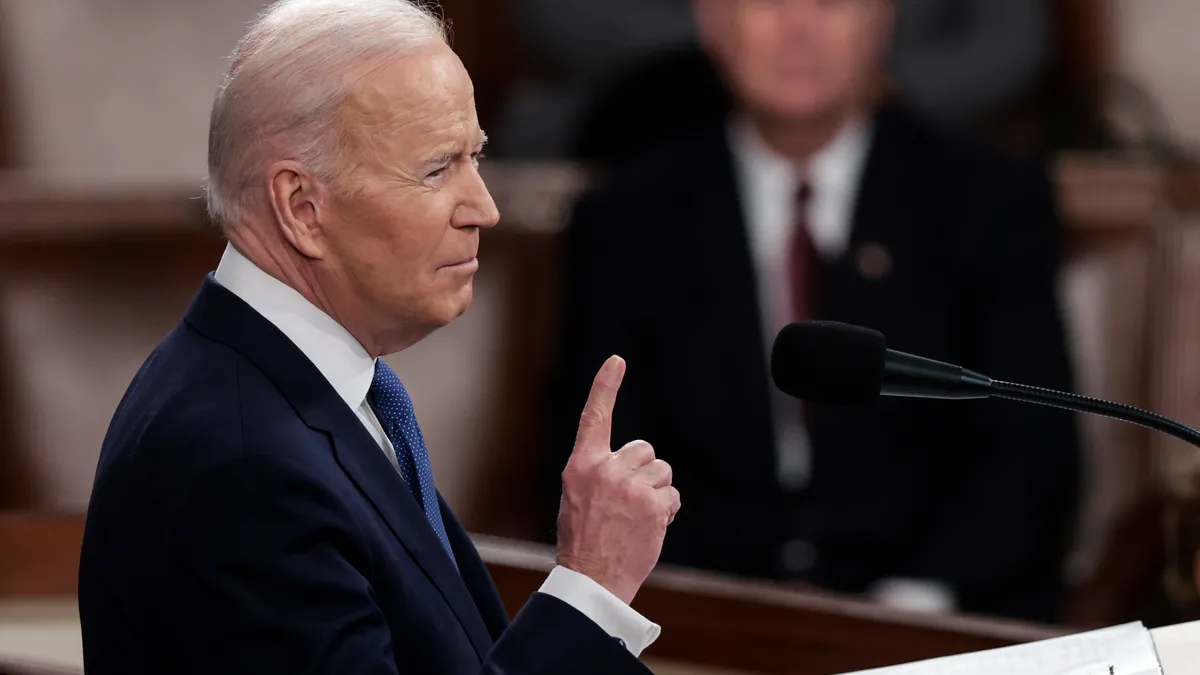Khyati Sundaram is CEO of Applied, a tool for predictive and fair hiring. Opinions are the author's own.
Last week, in his State of the Union address, President Biden called on employers to make a radical change. They should not, he counseled, be hiring staff based on their degrees, but instead focus on their skills. A simple, logical statement. But it's one which has the potential to transform the world of work and consign recruitment discrimination to history.
Employment and pay gaps in the U.S. are being perpetuated by recruitment processes which focus on which schools we went to, what we studied, and what grades we achieved. Degrees, thanks to their cost, are the preserve of those who have had the good fortune to afford a college education and attend a high school which enabled them to thrive. Job markets fixate on these degrees, often making them stipulations of employment and equating employee value with the best known college "brands." The best jobs, therefore, overwhelmingly go to privileged, white candidates. It's a self-fulfilling prophecy which bakes racial and class bias into the system, replacing aptitude and skill as markers of proficiency. To break the cycle, we must change the way we hire.
Biden is right: By assessing candidates for the skills they need for specific jobs, rather than their academic histories, we can level the playing field for minority ethnic and working class candidates. Meanwhile, employers will unlock a wealth of overlooked talent. How can this be achieved? The first step is doing away with resumes.
Resumes are a lightning rod for human bias. Individual's backgrounds — including their degrees or lack thereof — often say more about hiring teams' preconceptions than candidates' potential. We tend to favor those who look and sound like us. So candidates who went to the same college as members of their interview panel, hold the same degree or competed in the same sports have an unfair advantage over those who cannot draw upon such experiences.
Anonymizing applications and stripping them of information about a candidate's name, gender and academic history removes opportunities for human bias — whether conscious or unconscious — to cloud the judgement of hiring teams. Skills are more accurate predictors of performance than schools. In place of resumes, skills-based assessments, such as work sample tests, can be deployed to find the person with the best skill-set for the job. Research has shown this approach, where candidates are given role-specific scenarios to find out how they will fare in practice, is three times more accurate a predictor on how successful someone will be in a job.
Crucially, interviews in skills-based processes are structured. This means that all candidates are asked the same questions in the same order to ensure the interview stays focused on establishing skill-fit rather than straying into culture fit questions and areas where personal bias can thrive.
Having a degree is something people should rightly be proud of and President Biden's call to focus on skills shouldn't be misconstrued as a rallying cry to eschew college. Instead, it should be seen as a long overdue opportunity to level the playing field; to create equality of opportunity in our jobs market, in a way that allows people to showcase their skills and enables employers to make the best decision for their businesses. We must design and embrace systems that allow the best person for the job to get the job. And resumes simply won't do that. It's time to put skills first.











